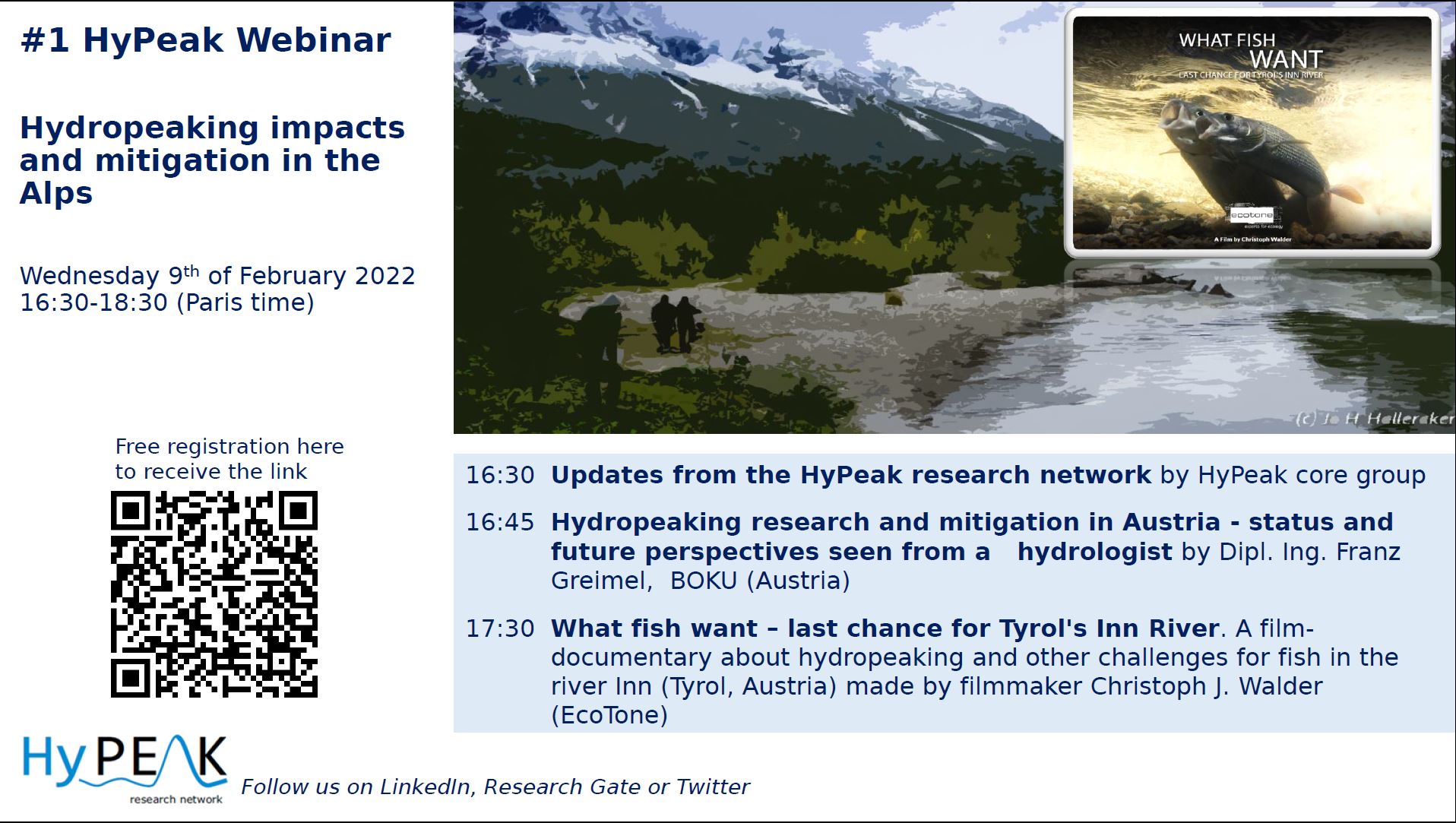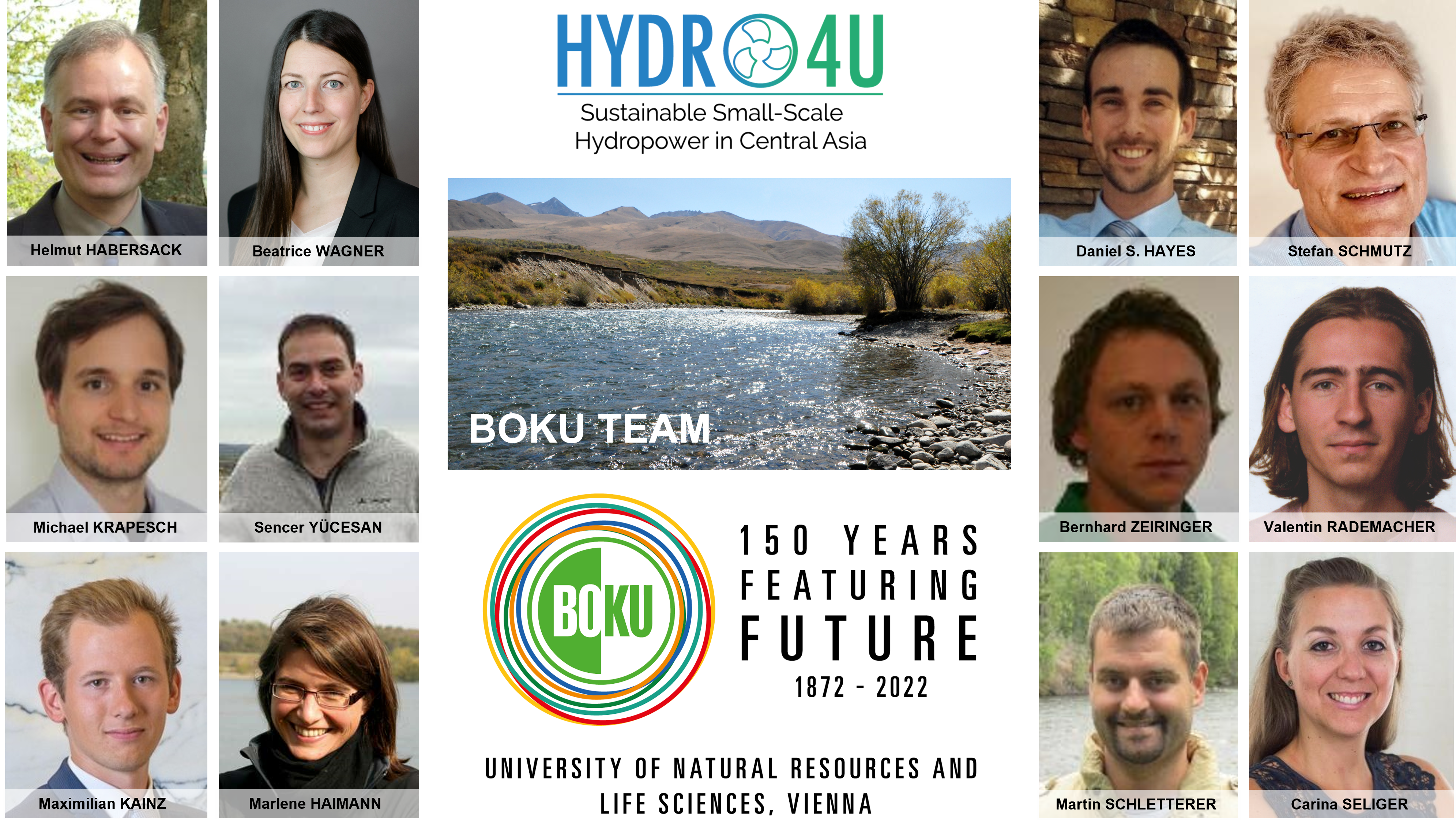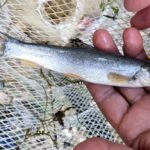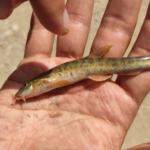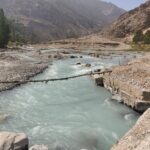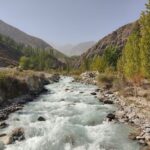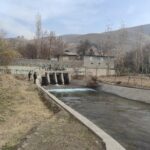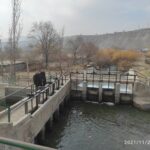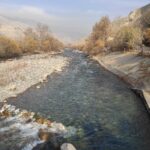9 Februrary 2022, 16:30-18:30 CET, online
The HyPeak research network is organising a webinar series around the topic of hydropeaking. The webinars will take place every second month to share relevant knowledge about hydropeaking issues and foster knowledge exchange and discussions. Attendance is free of charge.
Registration: Please register here at least one day before each webinar.
The zoom-link to the webinar will be shared with you after your registration.
The 1st webinar of this series will take place on 9 Februrary 2022, 16:30-18:30 CET.
Programme
Moderator: Jo H. Halleraker (NTNU)
16:30 Updates from the HyPeak research network by core group (M. Alp, M. Noack, M. C. Bruno, R. Casas-Mulet & I. Boavida)
You will get to know more about: HyPeak survey, RRA special issue on innovation in hydropeaking research, new membership and further plans.
16:45 “Hydropeaking research and mitigation in Austria – status and future perspectives seen from a hydrologist” by Dipl. Ing. Franz Greimel, Inst of Hydrobiology and water management at BOKU (Austria)
Relevant links and further information:
- Greimel et al (2016). A method to detect and characterize sub-daily flow fluctuations. Hydrol. Process. DOI: 10.1002/hyp.10773
- Greimel et al (2018). Hydropeaking Impacts and Mitigation. In Riverine Ecosystem Management: (editors S. Schmutz and J. Sansimir), Aquatic Ecology Series 8, Springer. DOI; 10.1007/978-3-319-73250-3_5
- CV and publication of Franz Greimel (BOKU) https://boku.ac.at/en/personen/person/3C48FE5EB192E42C
17:30 What fish wants – last chance for Tyrol’s Inn River.
A film-documentary about hydropeaking and other challenges for the grayling and other species in the river Inn (Tyrol, Austria) made by filmmaker Christoph J. Walder (EcoTone)
A 58 minute film about What Fish Want. This documentary film examines the life and behaviour of the fish in the Inn River (Austria). It also explores the reasons for the dramatic disappearance of vast numbers of the river‘s inhabitants. The film documents the largely unknown but significant effects of hydropower on the underwater world and accompanies conservationists and fishermen in their attempt to make the Inn a diverse and liveable river again.
Further webinar dates
30th March 2022, 17:00 – 18:00 (CEST) – “Sustainable Hydropeaking Management”
8th June 2022, 17:00 – 18:00 (CEST) – “Effects of Hydropeaking on bio-physical Processes”
About HyPeak
The HyPeak research network was established in 2020 to encourage integrated interdisciplinary and transdisciplinary knowledge to address the complex challenges of hydropeaking in a changing world with an increasing flexible energy demand. Hydro4U partner BOKU is a member of this network.
HyPeak’s vision is to bring together a reference group of experts to support evidence-based legislation at different levels (from national to international) and to enhance the value of the interaction between hydropeaking research and policy.
You will find more information about the HyPeak network on the follwing webpages, where also the presentations from the webinars will be uploaded:

